The views expressed in our content reflect individual perspectives and do not represent the authoritative views of the Baha'i Faith.
A year and a half ago in Charlottesville, Virginia, a 9th grader named Zyahna Bryant started a petition to remove the city’s statue of Confederate General Robert E. Lee.
In a letter to the editor of her city’s newspaper, Zyahna explained her petition this way:
I am calling on [Charlottesville’s] city council along with my peers and members of the community to remove the Robert E. Lee statue because it doesn’t represent what Charlottesville is all about. It is offensive to not only one group of people, but essentially it can be offensive to all people.
In her letter, she explained her opposition to the Lee statue:
When I think of Robert E. Lee I instantly think of someone fighting in favor of slavery. Thoughts of physical harm, cruelty, and disenfranchisement flood my mind. As a teenager in Charlottesville that identifies as black, I am offended every time I pass it. I am reminded over and over again of the pain of my ancestors and all of the fighting that they had to go through for us to be where we are now. Quite frankly I am disgusted with the selective display of history in this city… let’s not forget that Robert E. Lee fought for perpetual bondage of slaves and the bigotry of the South that kept most black citizens as slaves and servants for the entirety of their lives.
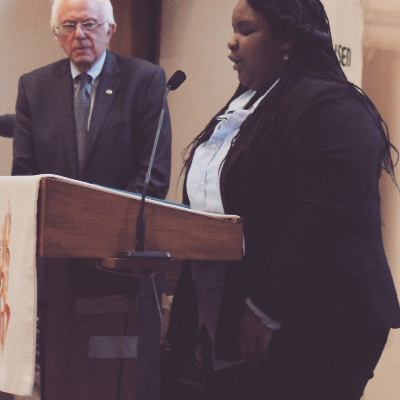
Zyahna Bryant
Hundreds of people signed Zyahna’s petition, and this past April, Charlottesville’s city council voted 3 to 2 to sell the statue, but a judge issued an injunction temporarily stopping the move.
Today, Charlottesville exploded with neo-Nazi, white supremacist anger and violence over the issue of that statue—and the much deeper issue of race-based hatred. Three people died, and dozens were injured. That ugly violence forms an apt example of how we often deal with our country’s deeply-embedded racism. While things may sometimes look healthy on the surface of our multicultural society, America’s centuries-long battle over racial prejudice has not healed. Racial hatred pushes itself to the surface regularly, and we all continue to face the consequences of its terrible, violent legacy.
If you don’t believe overt racism still exists in America, just watch the news reports about the deadly violence in Charlottesville. You’ll see that the American brand of race-based ignorance, prejudice and hatred has not gone away. If that doesn’t convince you, take a look at these statistics from a recent CBS poll of white Americans on their attitudes toward black people. The polling results do show some positive news—that American racist attitudes have progressively waned over the past 40 years. But they also tell us that just because they’ve diminished doesn’t mean racism has gone away. The poll found that:
- 21% of whites say they would oppose having a close relative marry a black person, and the same percentage of whites say they would not want to live in a place where half the neighbors are black.
- 40% of white Americans say “whites are more hard-working than blacks.”
- When asked why they think blacks, on average, have worse jobs, income and housing than whites, almost half of all whites (45%) say that “most blacks don’t have the motivation or willpower to pull themselves out of poverty.”
- 28% say it’s okay to discriminate when selling a home.
- A third of whites (34%) agree with the statement “blacks shouldn’t push themselves where they’re not wanted.” – CBS News, 30 April 2014.
These frightening numbers have something very important to tell us–racism is not dead. We do not live in a “post-racial” society. We have not conquered prejudice–far from it.
In one way, though, hideous reminders like Charlottesville can serve a valuable public function–they give us another reason to have the conversations and do the hard self-searching moral inventory necessary to actually deal with the reality of racism. They prompt us to review our own inner landscape and ask ourselves some tough questions about what we’ve personally done to advance the healing. They prompt us, once again, to see if we can find ways toward the racial unity the Baha’i teachings so strongly endorse.
Those teachings say this kind of hard work begins with seeing the spiritual heart of every human being:
God maketh no distinction between the white and the black. If the hearts are pure both are acceptable unto Him. God is no respecter of persons on account of either color or race. All colors are acceptable unto Him, be they white, black, or yellow. Inasmuch as all were created in the image of God, we must bring ourselves to realize that all embody divine possibilities. – Abdu’l-Baha, quoted by Shoghi Effendi in The Advent of Divine Justice, p. 37.
When these public racist outbreaks occur, they give us all another opportunity to broach the uncomfortable and challenging subject of our culture’s racism with people who normally might not be open to the discussion. They allow us to ask the open-ended question: “What do you think?” and then follow it up with an actual exchange of views. They give us a window of opportunity to help us confront our own overt or covert prejudices.
The Baha’i writings address racism openly and directly, establishing a clearly-delineated path toward its resolution. Speaking boldly to those who insist that racial prejudice is somehow inherent or unavoidable, Abdu’l-Baha tells us repeatedly that prejudice of any kind destroys human development:
Baha’u’llah has also taught that prejudices, whether religious, racial, patriotic or political are destructive to the foundations of human development. Prejudices of any kind are the destroyers of human happiness and welfare. Until they are dispelled the advancement of the world of humanity is not possible …. – Abdu’l-Baha, The Promulgation of Universal Peace, p. 182.
Shoghi Effendi, the Guardian of the Baha’i Faith, writing in the 1930’s, specifically asked white people to take ownership of this issue:
Let the white make a supreme effort in their resolve to contribute their share to the solution of this problem, to abandon once for all their usually inherent and at times subconscious sense of superiority, to correct their tendency towards revealing a patronizing attitude towards the members of the other race, to persuade them through their intimate, spontaneous and informal association with them of the genuineness of their friendship and the sincerity of their intentions, and to master their impatience of any lack of responsiveness on the part of a people who have received, for so long a period, such grievous and slow-healing wounds. – Advent of Divine Justice, pp. 39-40.
This reminds us that the recalcitrant racist opinions of neo-Nazis and white supremacists actually represented mainstream views in America not that long ago. As the polls clearly show, those ignorant, diseased prejudices persist in millions of people. They will not disappear magically. It takes generations to understand, address and begin to solve the racist inheritance of a brutal post-slavery legacy.
The Baha’i teachings directly address America’s racist past and present, confronting the issue head-on and asking us to allow no prejudice or separation between us and any other fellow human being:
You May Also Like
Comments



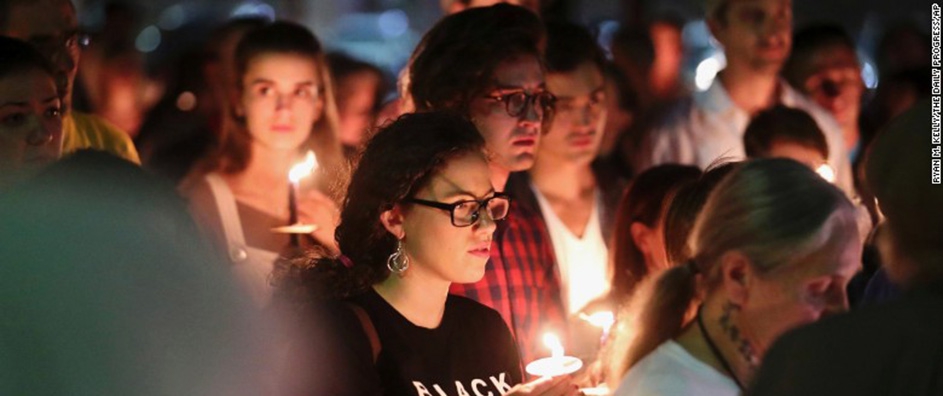

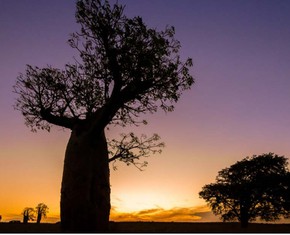
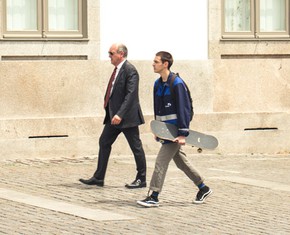

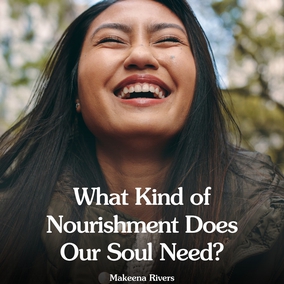








Dr. King also famously declared, “All that needs to happen for evil to prevail is that good men do nothing.”
Committing ourselves afresh today ...to advocating for the values of Buddhist humanism while standing up for human dignity, SGI-USA will never relent in its efforts to build a culture of peace in the United States.
The members of Soka Gakkai International-USA repudiate hatred and bigotry and appeal for equality and justice for all. The white supremacist violence in Charlottesville, VA, last weekend stands in the starkest contrast to the beautiful tapestry of all people that America should be.
It is difficult to believe that in 2017, we must stand witness to individuals bearing torches while chanting racist and anti-Semitic slogans. It harkens back to the darkest days of American history.
Even the religious part of the counter-protest was being violently threatened by the alt-right protesters. Even ...clergy from the National Council of Churches were attacked
Can you link the poll?? I don't trust any poll these days until I see the response rate and methodology. Without linking your source I just, instinctively, can't trust the numbers you cite.